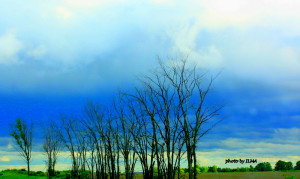
November 29
________________________________________
COVER YOURSELF WITH LIGHT AS WITH A CLOAK
Bless the LORD, my soul!
LORD my God, You are very great;
You are clothed with splendor and majesty,
2 Covering Yourself with light as with a cloak,
Stretching out heaven like a tent curtain.
3 He lays the beams of His upper chambers in the waters;
He makes the clouds His chariot; He walks on the wings of the wind;
4 He makes the winds His messengers, flaming fire His ministers. – Psalm 104:1-4
________________________________________
According to a commentary, “Bless the LORD, O my soul” is repeated three times in the previous psalm, this phrase is a call to worship God in spirit and in truth, and to do so from one’s inmost being. barak. The Hebrew for blesse is the verb “barak” which means to kneel as seen in Genesis 24:11. However, when written in the piel form it means to show respect as seen in Genesis 12:2. When the psalmist say this, he means to give praise to God. Sadly, many of us today do not know how to worship God in spirit and truth. We worship him according to our limited minds which may have been corrupted by religion and other worldly system. Enduringword.com comments that the psalmist worshipped Yahweh as his God, and as the great One who is clothed with honor and majesty. The idol gods of the nations were often described as crude and shameful in their conduct, but Yahweh, the covenant God of Israel, is known for His honor and majesty. God’s honor and majesty are as apparent as a person’s clothing, and so is the light-like purity of His being. Just as the creation in Genesis begins with describing the creation of light, so the psalmist first mentions light.
In verse 2, God’s honor and majesty are as apparent as a person’s clothing, and so is the light-like purity of His being. Just as the creation in Genesis begins with describing the creation of light, so the psalmist first mentions light in 1 Timothy 6:16 which says God dwells in unapproachable light. Perhaps this is another description or allusion to light as a garment. Spurgeon comments “If light itself is but his garment and veil, what must be the blazing splendour of his own essential being! We are lost in astonishment, and dare not pry into the mystery lest we be blinded by its insufferable glory.”
________________________________________
REFLECTION
• How can we cover ourselves with God’s light?
• How can we worship God in spirit and in truth?
Monthly Archives: November 2020
ASCRIBE STRENGTH TO GOD ILMA’S VLOG
 November 28
November 28
________________________________________
ASCRIBE STRENGTH TO GOD
Rebuke the animals in the reeds,
The herd of bulls with the calves of the peoples,
Trampling the pieces of silver;
He has scattered the peoples who delight in war.
31 Messengers will come from Egypt;
Cush will quickly stretch out her hands to God.
32 Sing to God, you kingdoms of the earth, sing praises to the Lord,
33 To Him who rides upon the highest heavens, which are from ancient times;
Behold, He speaks with His voice, a mighty voice.
34 Ascribe strength to God; His majesty is over Israel,
And His strength is in the skies.
35 God, You are awesome from Your sanctuary.
The God of Israel Himself gives strength and power to the people.
Blessed be God! – Psalm 68:30-35
________________________________________
According to a commentary, reeds mentioned in verse 30 were often associated with the Nile River. David prayed that God would keep them safe against the Egyptians and Ethiopians. He asked God to do that until they, like all the nations, come in submitted tribute to Jerusalem. In another commentary, VanGemeren says that “the ‘beast’ and the ‘bulls’ denote the oppressors, troublers, and seducers of the nations. They must come to an end, as the nations that have loved warfare and tribute will be ‘humbled’.” In verse 32, knowing the ultimate victory of God, David invited the nations to worship Him now. It was far better for them to do it now out of a willing, surrendered heart than to do it later as conquered enemies of God. Spurgeon comments in this verse as “We have too much sinning against God, but cannot have too much singing to God.” In verse 34, David invites people to credit the God of Israel, who gives strength and power to His people: The God who is actively involved in the life and victory of His people is worthy of praise.
David ends this psalm with summons to credit all our strength and victory to the one and only true God, who is faithful to deliver, protect and let his beloved people win over the enemies. In our current world today, do we ascribe strength and victory to the Lord? Many power-hungry people take credit for what only belongs to God Almighty.
________________________________________
REFLECTION
• Why do humans take credit for something that belongs to God?
GOD HAS COMMANDED YOUR STRENGTH ILMA’S VLOG

November 27
________________________________________
GOD HAS COMMANDED YOUR STRENGTH
They have seen Your procession, God,
The procession of my God, my King, into the sanctuary.
25 The singers went on, the musicians after them,
In the midst of the young women beating tambourines.
26 Bless God in the congregations,
Even the LORD, you who are of the fountain of Israel.
27 Benjamin, the youngest, is there, ruling them,
The leaders of Judah in their company,
The leaders of Zebulun, the leaders of Naphtali.
28 Your God has commanded your strength;
Show Yourself strong, God, You, who acted in our behalf.
29Because of Your temple at Jerusalem
Kings will bring gifts to You. – Psalm 68:24-29
________________________________________
Matthew Henry comments on these following verses. The victories with which God blessed David over the enemies of Israel, are types of Christ’s victory, for himself and for all believers. Those who take him for theirs, may see him acting as their God, as their King, for their good, and in answer to their prayers; especially in and by his word and ordinances. The kingdom of the Messiah shall be submitted to by all the rulers and learned in the world. The people seem to address the king, verse 28. But the words are applicable to the Redeemer, to his church, and every true believer. We pray, that thou, O God the Son, wilt complete thine undertaking for us, by finishing thy good work in us.
In this psalm, David paints a picture of God’s people worshiping Him, marching and singing praises to their God. They always point to the Lord for all their strength and how they are only able to do things because the Lord is always on their defense and looking after their own welfare. God has granted them that desire to bring glory to himself by doing all these miracles in the lives of the Israelites. It is only fitting that they bring all the praise and adulation to the God who is always faithful and loving.
In this world we live in, it is easy to claim credit for God’s work. David reminds us of the importance of remembering what God does in our lives. Are we able to remember all that He has done for us and do we thank Him enough?
________________________________________
REFLECTION
• How can we manifest worshiping God and thanking Him in our modern day lives?
GOD IS OUR SALVATION AND VICTORY ILMA’S VLOG

November 26
________________________________________
GOD IS OUR SALVATION AND VICTORY
Blessed be the Lord, who daily bears our burden,
The God who is our salvation. 20 God is to us a God of salvation;
And to GOD the Lord belong ways of escape from death.
21 God certainly will shatter the heads of His enemies,
The hairy head of one who goes about in his guilt.
22 The Lord said, “I will bring them back from Bashan.
I will bring them back from the depths of the sea,
23 So that your foot may shatter them in blood,
And the tongue of your dogs may have its portion from your enemies.” -Psalm 68:19-23
________________________________________
Verse 19 is praise to God for keeping up with our fallen nature. David recognizes that only in the Lord God it is possible for us to free and receive our redemption. Verse 20 according to enduring.com commentary speaks much of the ark coming to Jerusalem, but that only happened after David defeated Israel’s surrounding enemies. David thought of how God rescued him in those conflicts. In doing so He used the somewhat uncommon but wonderful phrasing of Yahweh Adonai (GOD the Lord). Verse 21 gives an illustration of God’s victory. David used an image from Genesis 3:15 where God promised that the Messiah would strike a fatal head wound against Satan. The victory would be total, with God’s people walking as winners over the field of battle. Poole comments on verse 21 regarding hairy head because in ancient times, many people used to wear long and shaggy hair, that their looks might be more terrible to their enemies.
Studylight.org comments on verse 22: David remembers God’s promise that the Israelites will be delivered and recovered from the depths of the sea, which means great danger. Numbers 21:33 mentions the great conflict with Og of Bashan and Exodus 14:22 illustrates the passage through the Red Sea.”The depths of the sea” is a proverb for imminent risks. Maurer, taking this view, makes the sea mean the Mediterranean on the west, as Bashan is on the east. Amos 9:3 then explains the language. But it is plainly Israel that is brought “from the depths of the sea” by ‘the God of salvation, her God, unto whom belong the issues of death’ (Psalms 68:19).
All the people of God must remember that we cannot take salvation in our own hands and bear all our burden. God is the only source of our salvation and victory.
________________________________________
REFLECTION
• Why do we humans often think that we have any contribution in our salvation?
LIKE THE WINGS OF A DOVE COVERED WITH SILVER ILMA’S VLOG

November 25
________________________________________
LIKE THE WINGS OF A DOVE COVERED WITH SILVER
When you lie down among the sheepfolds,
You are like the wings of a dove covered with silver,
And its pinions with glistening gold.
14 When the Almighty scattered the kings there, It was snowing in Zalmon.
15 The mountain of Bashan is a mountain of God;
The mountain of Bashan is a mountain of many peaks.
16 Why do you look with envy, you mountains of many peaks,
At the mountain God has desired as His dwelling?
Indeed, the LORD will dwell there forever.
17 The chariots of God are myriads, thousands upon thousands;
The Lord is among them as at Sinai, in holiness.
18 You have ascended on high, You have led captive Your captives;
You have received gifts among people,
Even among the rebellious as well, that the LORD God may dwell there. – Psalm 68:13-18
________________________________________
Enduringword.com comments on verse 13 as: The people of God come from humble circumstances (they lie down among the sheepfolds), but they share in God’s great victory over their enemies and are graced with great blessings and gifts. “The wings of a dove, flashing silver and gold, have been taken to refer to Israel basking in prosperity (Delitzsch), to the enemy in flight (Briggs), to the glory of the Lord manifested at the battle (Weiser), or even to a particular trophy seized from the enemy.Verse 14 mentions snowing in Zalmon which is another name for Mount Ebal in central Israel, which many would consider more of a high hill than an actual mountain. The meaning of this line is not entirely clear and has been the source of much speculation.VanGemeren comments that “According to Judges 9:48, Zalmon (‘the Dark One’) is one of the mountains by Shechem.” “A mountain of God is the mountain of Bashan which was an impressive mountain. Yet it and the other mountains seem to fume with envy when they see how God has favored Zion where He seats Jerusalem. Paul quoted Psalm 68:18 and applied it to Jesus, in Ephesians 4:8. Paul applied this to the ascension of Jesus into heaven and His sending of the power and the gifts of the Holy Spirit to His Church. David reflects on God’s great generosity to His chosen people. He equips them all with gifts for His kingdom.
________________________________________
REFLECTION
• How are we using God’s gifts to further His kingdom?
GOD THE PROVIDER ILMA’S VLOG

November 24
________________________________________
GOD THE PROVIDER
God, when You went forth before Your people,
When You marched through the desert,
8 The earth quaked; The heavens also dropped rain at the presence of God;
Sinai itself quaked at the presence of God, the God of Israel.
9 You made plentiful rain fall, God;
You confirmed Your inheritance when it was parched.
10 Your creatures settled in it;
In Your kindness You provided for the poor, God.
1 The Lord gives the command;
The women who proclaim good news are a great army:
12 “Kings of armies flee, they flee,
And she who remains at home will divide the spoils!”- Psalm 68:7-12
________________________________________
Enduringword.com comments on this psalm: David continued his thoughts on God’s presence with and care for Israel through the wilderness on the way to Canaan. You went out before Your people emphasizes the idea that God was with Israel; He did not abandon them despite the many ways they provoked Him. Spurgeon comments “We may speak, if we will, of the ‘wanderings of the children of Israel,’ but we must not think them purposeless strayings; they were in reality a well-arranged and well considered march.” Verse 8 says that the earth quaked As God was with Israel in the wilderness, they were protected. His might was on their side. No other nation could defeat them when they walked with God. Verse 9 mentions that as God was with Israel in the wilderness they were provided for. They would never suffer hunger or thirst as they walked in God’s presence. As part of that provision, God sent them a plentiful rain in a needy time. This care for them was a way God confirmed the special place Israel had in His heart and plan. They were His inheritance.“ Kidner says that verse 8’s allusion to Sinai is from the Song of Deborah in Judges 4:8. According to Horne for verse 12: Thus, in the spiritual war, apostles, confessors, and martyrs went out to the battle, fought and conquered…the benefits of victory extended to thousands and millions, who, without being exposed to their conflicts and torments, have enjoyed the fruit of their labours.” This psalm praises the Lord and give thanks for all His provision to His people.
________________________________________
REFLECTION
• Why is praising the Lord and thanking Him important in our lives?
GOD MAKES A HOME FOR THE LONELY AND LEADS PRISONERS FREE ILMA’S VLOG

November 23
________________________________________
GOD MAKES A HOME FOR THE LONELY AND LEADS PRISONERS FREE
May God arise, may His enemies be scattered,
And may those who hate Him flee from His presence.
2 As smoke is driven away, so drive them away;
As wax melts before a fire,
So the wicked will perish before God.
3 But the righteous will be joyful; they will rejoice before God;
Yes, they will rejoice with gladness.
4 Sing to God, sing praises to His name;
Exalt Him who rides through the deserts,
Whose name is the LORD, and be jubilant before Him.
5 A father of the fatherless and a judge for the widows,
Is God in His holy dwelling.
6 God makes a home for the lonely;
He leads out the prisoners into prosperity,
Only the rebellious live in parched lands. -Psalm 68:1-6
________________________________________
Based on a commentary by enduring word.com, most commentators believe this psalm is connected with the coming of the ark of the covenant into Jerusalem (2 Samuel 6), celebrating not only that event, but also the faithfulness of God to give Israel victory over her enemies, and to make Jerusalem secure enough to bring the ark into the city. Verse 1 uses the phrasing of Numbers 10:35, David proclaimed the triumph of God over all His enemies. When God goes forth, no opponent can stand against Him. They are all scattered. Since Moses said those words when the ark of the covenant led Israel from Mount Sinai, David knew it was appropriate to say the same words as the ark came to Jerusalem, its resting place. As David brought the ark of the covenant to Jerusalem (2 Samuel 6), he made a dramatic historical connection.
These first 6 verses emphasize what God does for His own people and how they should exalt him and sing praises. In verse6, I was particularly struck how he cares for the lonely and leads prisoners out of captivity into prosperity. We live in a very isolated and lonely world and in bondage to this world system and sins. We are admonished to give up rebellion in verse 8 for they are not blessed by God.
________________________________________
REFLECTION
• How can you help the lonely and the captives from their helplessness?
HELP ME AND SAVE ME ACCORDING TO YOUR MERCY ILMA’S VLOG

November 22
________________________________________
HELP ME AND SAVE ME ACCORDING TO YOUR MERCY
Help me, LORD my God; Save me according to Your mercy.
27 And may they know that this is Your hand; You, LORD, have done it.
28 They will curse, but You bless; When they arise, they will be ashamed,
But Your servant will be glad. 29 May my accusers be clothed with dishonor,
And may they cover themselves with their own shame as with a robe.
30 With my mouth I will give thanks abundantly to the LORD;
And I will praise Him in the midst of many.
31 For He stands at the right hand of the needy,
To save him from those who judge his soul. – Psalm 109:26-31
________________________________________
According to a commentary on this psalm, in verse 26, David’s plea was straightforward and simple. Like the woman of Canaan with the demon-possessed daughter (Matthew 15:21-25), he asked God for help. As in verse 21, he asked for it on the basis of God’s mercy, not his own merit. It was very important to David that his enemies and all who looked on him knew that his rescue was from God’s hand; the LORD had done it. He didn’t want deliverance only for his own sake, but also for the glory of God. What a servant David was! He is loyal to credit everything to his Master and Lord. He never wants to be praised; instead, he points to God, the Almighty. Spurgeon says that “Ungodly men will not see God’s hand in anything if they can help it, and when they see good men delivered into their power they become more confirmed than ever in their atheism; but all in good time God will arise and so effectually punish their malice and rescue the object of their spite that they will be compelled to say like the Egyptian magicians, ‘this is the finger of God.’”
David understood that the curses of his enemies could never triumph over the blessings of God in his life. This would make David rejoice and his enemies be clothed with shame, wearing their disgrace as if it were a mantle. Maclaren says “The psalm began with addressing ‘the God of my praise’; it ends with the confidence and the vow that the singer will yet praise Him. It painted an adversary standing at the right hand of the wicked to condemn him; it ends with the assurance that Jehovah stands at the right hand of His afflicted servant, as his advocate to protect him.”
What a heart David has; constantly seeking God because he loves his Lord so much.
________________________________________
REFLECTION
• How can we develop a heart that seeks out for God’s plan to be done in our lives?
DEAL KINDLY WITH ME FOR YOUR NAME’S SAKE ILMA’S VLOG

November 21
________________________________________
DEAL KINDLY WITH ME FOR YOUR NAME’S SAKE
But You, GOD, the Lord, deal kindly with me for the sake of Your name;
Because Your mercy is good, rescue me;
22 For I am afflicted and needy,
And my heart is wounded within me.
23 I am passing like a shadow when it lengthens;
I am shaken off like the locust.
24 My knees are weak from fasting,
And my flesh has grown lean, without fatness.
25 I also have become a disgrace to them;
When they see me, they shake their head.- Psalm 109:21-25
________________________________________
Enduringword.com comments on verse 21 as David understood that it wasn’t enough to have his enemy judged. David needed help from God, from Yahweh Adonai. He asked on the basis of God’s name and mercy, not on the basis of his own righteousness. How many of us ask God for His help for God’s sake and not for our own sake? This amazes me because only a few of us believers actually do serve God authentically. Most of us come to God for help so we can be comfortable and get delivered. In other words, we want to get something or a favor from God for our own benefits, whether it is a need or a desire.
Verse 22 says “For I am afflicted and needy” which is a confession of the state of his heart, how poor and needy it has become. David shows that he was the one broken in heart mentioned in verse 16. David’s misery was also physical. He felt his life was wasting away, complaining that his flesh was so weak. The hateful enemy either caused this physical weakness or took advantage of it. Being able to discern what the enemy’s tactics are is a clear indication of David’s intimacy with the Lord. He sees what these wicked people have done to him. They have depleted his energy and have somehow made progress at bringing him down. Yet, David knows that his Lord is faithful to deliver him and bring him vengeance and justice. Verse 25 says “I also have become a disgrace to them, when they see me, they shake their heads”. His enemies shook their heads in both pity and disgust when they look at him. How often do we automatically seek approval from man? In verse 25, we see David’s observance of how his enemies look at him. Should we be concerned how others see us or shouldn’t we only care how God sees us?
________________________________________
REFLECTION
• How can we let go of “selfishness” when we ask God for help?
CURSES TO THOSE WHO CURSE ILMA’S VLOG

November 20
________________________________________
CURSES TO THOSE WHO CURSE
May the guilt of his fathers be remembered before the LORD,
And do not let the sin of his mother be wiped out.
15 May they be before the LORD continually,
So that He may eliminate their memory from the earth;
16 Because he did not remember to show mercy,
But persecuted the afflicted and needy person,
And the despondent in heart, to put them to death.
17 He also loved cursing, so it came to him;
And he did not delight in blessing, so it was far from him.
18 But he clothed himself with cursing as with his garment,
And it entered his body like water, and like oil into his bones.
19 May it be to him as a garment with which he covers himself,
And as a belt which he constantly wears around himself.
20 May this be the reward of my accusers from the LORD,
And of those who speak evil against my soul. – Psalm 109:14-20
________________________________________
According to enduringword.com, In verse 20, David hoped that the sins of his enemy’s ancestors would also be held against his enemy, and that the remembrance of those sins would be continually before the LORD. In verse 16, David’s enemy and his companions despised the goodness David extended to them (which goes back to verse 5). Yet the hateful ways went beyond the wrong done to David; he also persecuted the poor and needy. This merciless cruelty to the broken in heart was completely contrary to the nature of God. Psalm 34:18 says that The LORD is near to those who have a broken heart and in Psalm 51:17, it says that God never despises a broken heart. As he loved cursing, so let it come to him: David’s prayer was rooted in simple justice. He wanted God to do to this enemy what that guilty man had done to others. David wanted the man to be clothed with curses. According to Spurgeon, retaliation, not for private revenge, but as a measure of public justice, is demanded by David and deserved by the crime. Surely the malicious man cannot complain if he is judged by his own rule, and has his corn measured with his own bushel.” David’s heart is full of compassion and mercy to the poor.
________________________________________
REFLECTION
• Why is David so adamant at getting justice for injustice to the poor in spirit?
